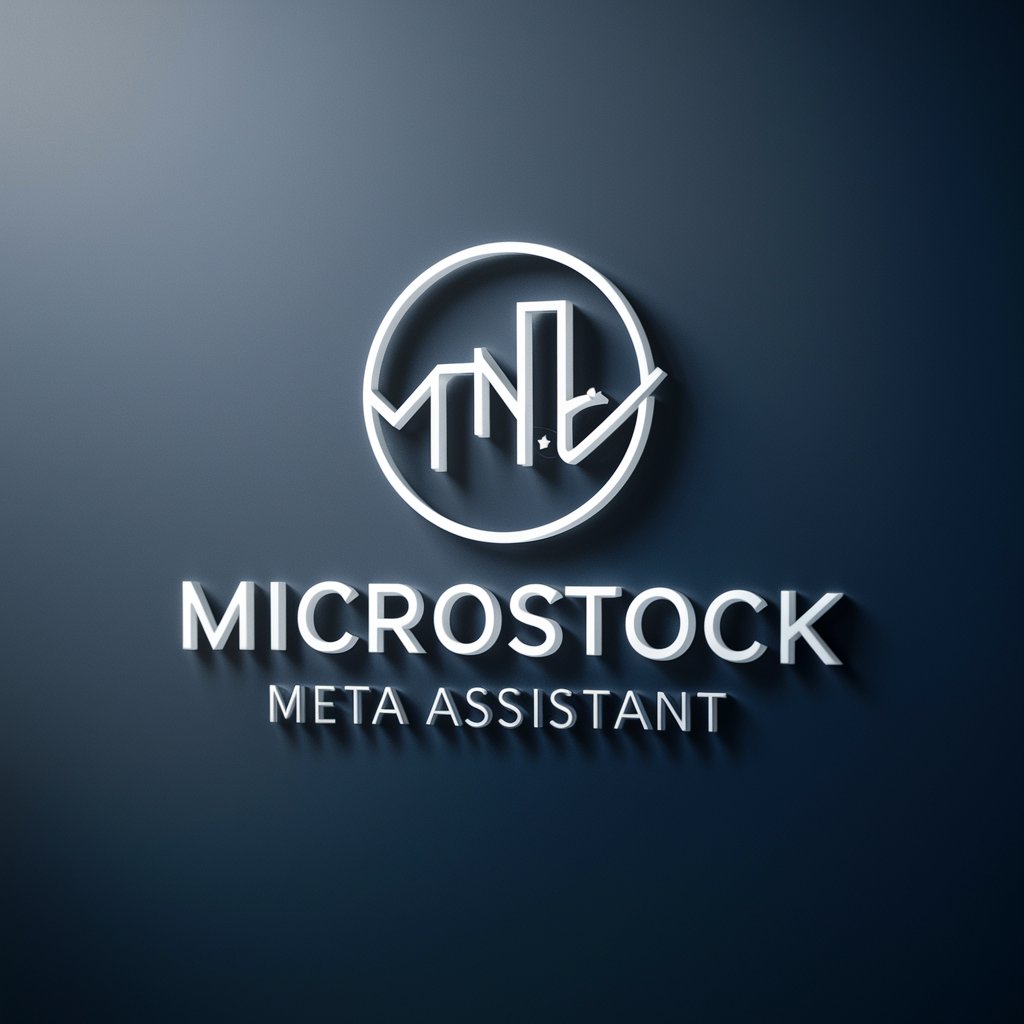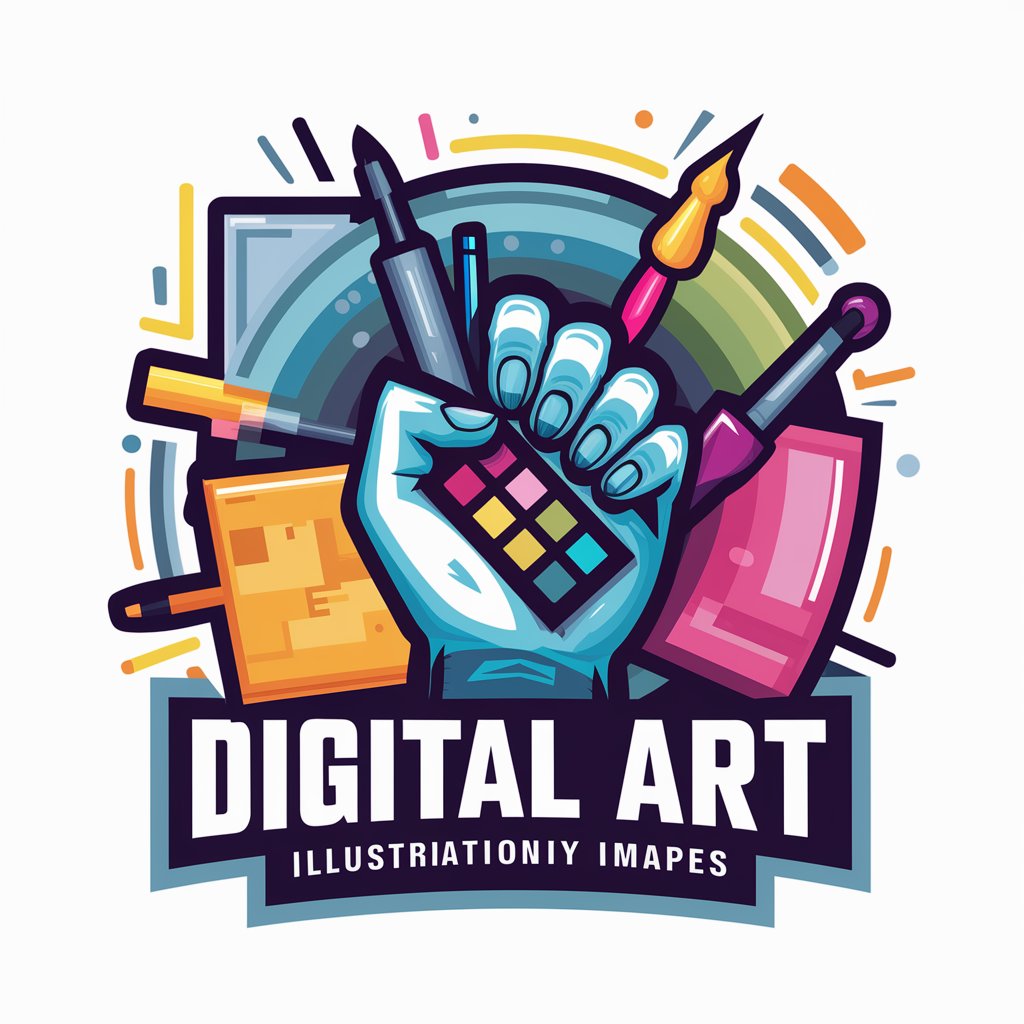5 GPTs for Metadata Generation Powered by AI for Free of 2025
AI GPTs for Metadata Generation are advanced tools based on Generative Pre-trained Transformers technology, specifically designed to assist in creating, optimizing, and managing metadata. These tools leverage the power of AI to automate the process of metadata generation, making it more efficient and accurate. By understanding and analyzing content, GPTs can extract relevant information and generate descriptive tags, summaries, and other forms of metadata that enhance data discoverability and usability. Their relevance lies in the ability to provide tailored solutions for managing vast amounts of data across various digital platforms, significantly improving content management and searchability.
Top 5 GPTs for Metadata Generation are: Microstock Meta Assistant,Firm Internal Content Writer Engine (main),Artwork Ally,图片描述和标题,MARCmin Alpha
Microstock Meta Assistant
Optimize your images with AI-powered metadata.

Firm Internal Content Writer Engine (main)
Crafting Precision-Engineered Content

Artwork Ally
Empowering Artists with AI-Driven Insights

图片描述和标题
Elevate Your Art with AI-Powered Insights

MARCmin Alpha
Transforming Bibliographic Data with AI

Key Attributes and Capabilities
AI GPTs for Metadata Generation boast several unique features that make them stand out. Their adaptability allows for customization across a range of complexity levels, from generating basic tags to providing detailed content summaries. Key capabilities include natural language processing for understanding content context, image recognition for visual content analysis, and data analysis for identifying patterns and relevant information. Special features might include multilingual support, technical documentation generation, and integration with web search functionalities to enhance metadata accuracy and relevance.
Who Benefits from Metadata Generation Tools
These tools cater to a broad audience, including content creators, digital librarians, SEO professionals, and developers. They are particularly beneficial for those without coding skills due to their user-friendly interfaces, yet offer extensive customization options for users with programming knowledge. This dual accessibility ensures that novices can efficiently generate metadata, while experts can tailor the tools to fit specialized needs.
Try Our other AI GPTs tools for Free
Wish List
Discover how AI GPTs revolutionize wish list management, offering personalized, efficient, and intuitive solutions for individuals and professionals alike.
Elf Chat
Discover the magic of AI GPTs for Elf Chat, designed to bring elf lore to life through dynamic, context-aware conversations and storytelling. Perfect for enthusiasts and creators alike.
Santa Webcam
Explore AI GPTs for Santa Webcam, innovative tools designed to enrich your holiday season with real-time Santa tracking, interactive storytelling, and educational content, accessible to all ages and skill levels.
Visual Quizzing
Discover the power of AI GPTs for Visual Quizzing, designed to enhance learning with interactive visual quizzes tailored to your needs.
Minimalist Cooking
Discover how AI GPTs for Minimalist Cooking can transform your culinary experience with personalized recipes, meal planning, and cooking advice, all tailored to simplify your kitchen routine.
Entertainment Blogs
Discover how AI GPTs transform entertainment blogging with creative, efficient content creation. Tailored for both novices and professionals, these tools redefine engaging storytelling.
Expanding Horizons with AI-Driven Solutions
AI GPTs for Metadata Generation are not just about automating tasks; they're about providing intelligent, context-aware solutions that can adapt to various sectors. From enhancing online discoverability to streamlining digital archives, these tools offer significant advantages. Their user-friendly interfaces and integration capabilities make them a valuable addition to any digital strategy, empowering users to manage and utilize data more effectively.
Frequently Asked Questions
What exactly is metadata generation?
Metadata generation involves creating descriptive or structural data about other data, facilitating easier management, discovery, and understanding.
How do AI GPTs improve metadata generation?
AI GPTs automate and refine the metadata generation process, utilizing advanced algorithms to analyze content and produce precise, relevant metadata.
Can these tools generate metadata for any type of content?
Yes, these tools are designed to handle a variety of content types, including text, images, and multimedia files.
Do I need programming skills to use these tools?
No, many AI GPTs for Metadata Generation are designed with user-friendly interfaces that require no coding skills, although programming knowledge can enhance customization.
How can developers customize these GPT tools?
Developers can access APIs or use scripting languages to tailor the tools' functionality, integrating them into existing workflows or creating specialized metadata solutions.
Are there multilingual capabilities?
Yes, many of these tools support multiple languages, allowing for the generation of metadata in various languages.
How does image recognition work in metadata generation?
Image recognition involves analyzing visual content to identify objects, themes, and patterns, which can then be translated into descriptive metadata.
Can metadata generation tools integrate with existing systems?
Yes, through APIs and customization options, these tools can often be seamlessly integrated into existing content management systems or digital libraries.